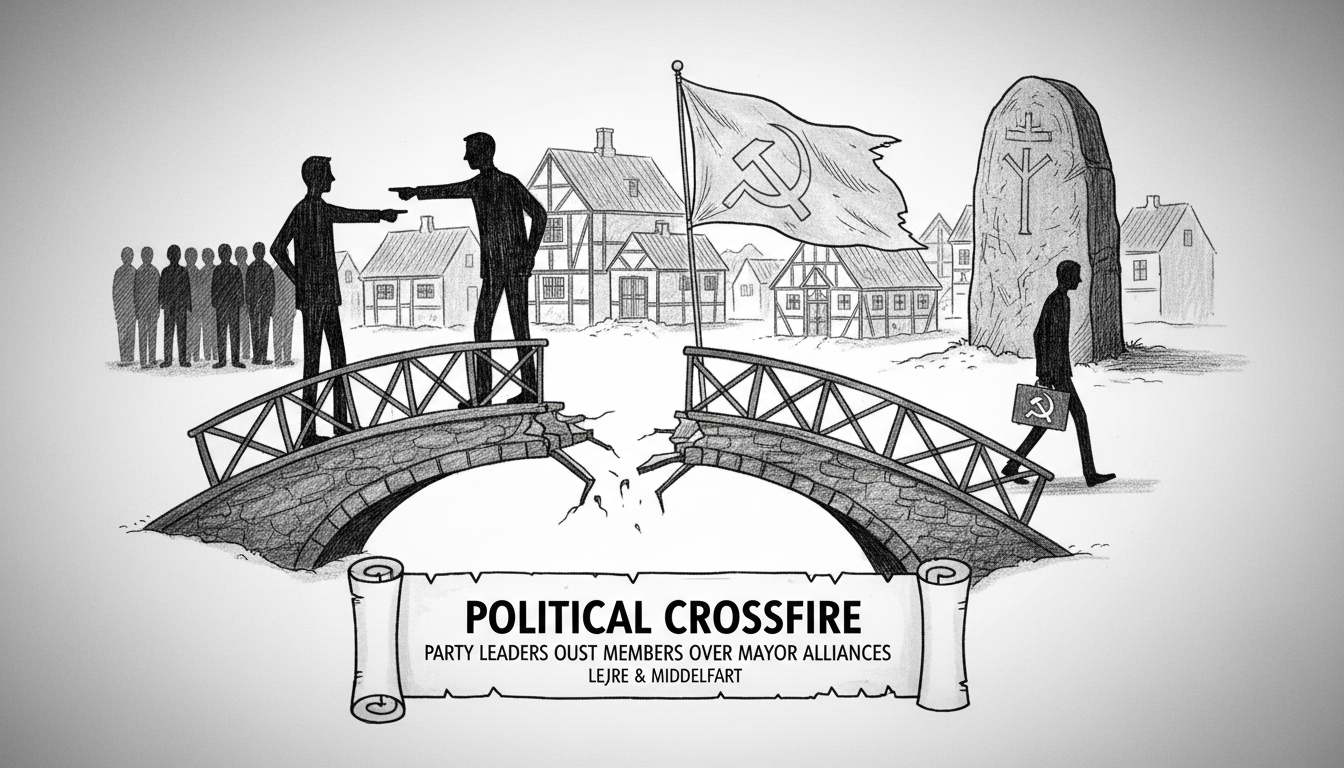Two Danish municipalities face political turmoil after local election results sparked unexpected alliances and party defections. In Lejre, Denmark Democrats leader Inger Støjberg expelled council member Ole Blickfeldt for supporting a Socialist mayor against the party's directive. Støjberg confirmed the immediate expulsion via email after Blickfeldt openly defied her pre-election rule about not supporting left-wing candidates. The council member received the dismissal notice but declined further comment. Despite a conservative majority holding 13 of 25 seats in Lejre's council, Socialist candidate Mikael Ralf Larsen secured the mayor position with 17 votes, including support from Blickfeldt's single Denmark Democrats mandate. This represents a significant breach of traditional Danish political bloc discipline, where parties typically maintain strict voting alignment within their political spectrum. The situation demonstrates how individual council members can dramatically alter local power dynamics despite established party agreements.
Meanwhile in Middelfart, Social Democrat Ulla Sørensen announced her defection to the Liberal Party, potentially costing current mayor Johannes Lundsfryd Jensen his position. Sørensen's move came just days after local elections where she secured the ninth and final council seat for Social Democrats with 252 personal votes. Liberal Party lead candidate Anders Møllegaard confirmed they would now support Sørensen for mayor, creating an unprecedented political scenario. The current mayor, who garnered 1,702 personal votes, was reportedly sent home in shock and declined comment on the developing situation. A fellow party member described the defection as 'politics at its worst' and fundamentally opposed to Social Democratic values of cohesion and democracy. This political maneuver echoes a similar 2013 drama in Nyborg municipality, where a Social Democrat's party switch enabled a Liberal mayor's election.
The Middelfart case carries particular historical significance. The municipality has maintained Social Democratic mayors since transitioning from royally appointed to elected officials in 1919. Over 106 years, only four individuals have held the mayor's office, making this potential transition particularly dramatic. The newly formed coalition agreement between Social Democrats, Danish People's Party and Socialists, which initially secured 13 of 25 mandates, now requires complete renegotiation. Sørensen defended her sudden party switch as supporting 'broad cooperation' and denied betraying voters. These parallel incidents in separate municipalities reveal increasing fragmentation in Danish local politics, where traditional left-right divides are becoming less predictable. Council members appear increasingly willing to cross political boundaries for local priorities, creating challenges for national party leadership trying to maintain discipline. The situations also raise questions about voter representation when elected officials change allegiance shortly after elections. Both cases will likely influence how Danish parties screen candidates and enforce voting agreements in future local elections.
Danish political experts note these developments reflect broader European trends where local politics increasingly diverges from national party lines. The traditional 'bloc politics' model appears under strain as municipal issues sometimes transcend ideological divisions. This could signal a shift toward more issue-based alliances in Danish local government, though national parties clearly intend to resist this fragmentation. The coming days will reveal whether these political maneuvers succeed and how they might reshape coalition building in Danish municipalities.

